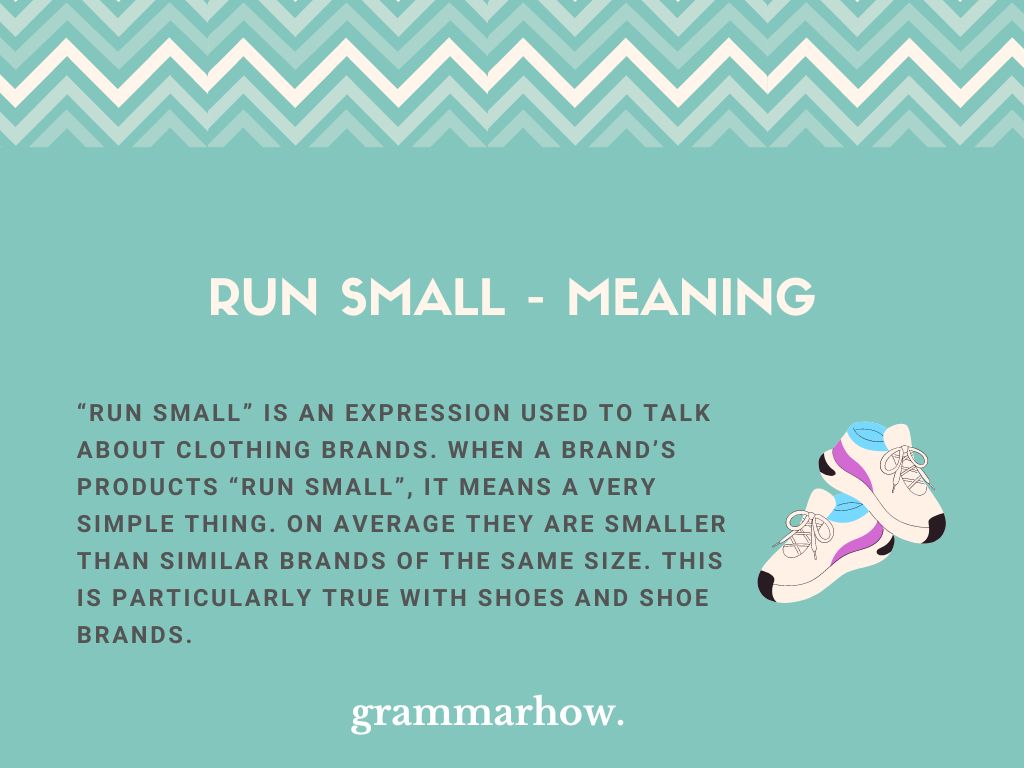Exploring The Meaning Behind Hit-Boy's Run RZA Run
Sometimes, a few words can really make you stop and think, particularly in the world of music, where phrases often carry more than just their surface sense. When you hear something like "Hit-Boy's Run RZA Run," it feels like there's a whole lot packed into those simple words. It’s a bit like finding an old, interesting picture and wanting to know the story behind it, you know? This particular saying, it seems to suggest a connection, a passing of something significant, or maybe even a nod to what’s happening right now in sound creation. We are going to try and figure out what this saying truly points to.
You might be wondering, what exactly does this phrase point to in the bigger picture of hip-hop and its creative side? Is it just a catchy line, or does it hint at something deeper about how music gets made and who shapes its sounds? There’s a good chance it’s more than just a quick shout-out. It could be a way of talking about how different generations of music makers connect, or how certain styles of production keep showing up over time. We're going to take a closer look at what this short string of words might be telling us about the art of making beats and rhymes.
This idea of looking closely at what a phrase means, it’s a bit like digging for something special, isn't it? We’re not just listening to the words; we are trying to find the story, the influence, and the lasting mark left by people who shape sounds. So, with "Hit-Boy's Run RZA Run," we are going to consider the people involved, what they stand for, and what this saying tells us about the ongoing conversation in hip-hop. It’s a chance to really see how creative ideas move through time, you know, and how one person's work can affect so many others.
Table of Contents
- RZA- The Architect of Sound
- What's Behind "Hit-Boy's Run RZA Run"?
- The Producer's Influence- A Deep Look
- The Sound and Its Story
- Looking at Hip-Hop's Lineage
RZA- The Architect of Sound
When you talk about people who really put their stamp on hip-hop, RZA's name comes up pretty quickly. He’s someone who truly helped shape a whole sound, a way of making music that changed things for a lot of folks. His work with a famous group from Staten Island, New York, is what many people first think of. He created a distinct sound, one that was gritty and soulful all at once, kind of like a worn-out but cherished photograph. This sound, it was very much his own, and it made a big impression on countless listeners and other music creators, you know, for quite some time.
He didn't just make beats; he crafted entire worlds with his sounds. Think about how a storyteller builds a setting for a tale; RZA did that with audio. He often used old movie snippets, bits of soul music, and other unexpected sounds, piecing them together in ways no one else really was at the time. This way of working, it was pretty inventive, and it made his music stand out. It’s like he was always looking for new ways to put things together, to make something fresh out of things that were already there. That, in a way, is what makes his work so memorable, even today.
A Look at His Life and Work
Robert Fitzgerald Diggs, known to many as RZA, has had a fascinating path. He was born in Brooklyn, New York, and spent parts of his childhood in both New York City and North Carolina. This mix of places, you could say, probably gave him a bit of a different view on things, helping him develop his own unique creative outlook. He started out making music at a young age, getting into the world of hip-hop when it was still fairly new. His early efforts showed a natural talent for putting sounds together, even then.
- %D0%BB%D1%83%D0%B8%D1%81 %D1%84%D0%B5%D0%BB%D0%B1%D0%B5%D1%80
- Phyllis Fierro
- Keith Urban Tour History
- Chris Odonnell
- Jessica Alba Fantastic Four
His career really took off when he helped form the group that would become legendary. As the main sound designer for this group, he was responsible for their signature sonic atmosphere, which was dark, cinematic, and deeply textured. He also took on other roles, like directing movies and writing books, showing that his creative interests went well beyond just music. He's a person who seems to always be creating, trying out new things, and leaving his mark in different fields. Here’s a quick look at some personal details about him, just to give you a clearer picture.
| Full Name | Robert Fitzgerald Diggs |
| Known As | RZA, Bobby Digital, Prince Rakeem |
| Born | July 5, 1969 |
| Birthplace | Brooklyn, New York, USA |
| Occupations | Music producer, rapper, director, actor, author |
| Active Years | 1990–present |
What's Behind "Hit-Boy's Run RZA Run"?
So, when someone says "Hit-Boy's Run RZA Run," what exactly are they trying to get at? It's a phrase that has a certain ring to it, almost like a declaration. You know, it’s not just random words put together. It feels like it’s pointing to something important about how music is being made today and how it connects to the past. It suggests a lineage, perhaps, or a recognition of a particular kind of impact in the world of beat making. This saying, it could be a way of acknowledging the current success of one person while also tipping the hat to the lasting influence of another. It’s a bit like saying, "this person is really doing it right now, just like that other person did back then."
Think about it: "Run" in this context often means a period of great success or a streak of excellent work. So, "Hit-Boy's Run" would point to his current period of making a lot of popular and well-received tracks. He's been putting out a lot of quality music lately, and people are noticing. Then you have "RZA Run," which isn't about a current streak but rather about his historical impact, his enduring legacy, and the way his sound continues to echo through hip-hop. It's a way of saying that RZA's influence is still very much a part of the soundscape, even if he's not making every hit right now. It's almost like a bridge between different times in music, which is pretty cool if you think about it.
Getting a Sense of the Phrase's Heart
To truly get to the core of "Hit-Boy's Run RZA Run," we need to consider the idea of influence and continuation. It's not just about two producers; it's about what they represent. Hit-Boy, as a more contemporary sound creator, has a distinct style that is current and very much of this moment. His beats are often sharp, impactful, and widely recognized. RZA, on the other hand, represents a foundational sound, a style that helped build the very structure of a certain type of hip-hop production. His work is often looked at as a blueprint for a whole era. So, the phrase itself might be a way of saying that the spirit of impactful, groundbreaking production continues, just with new hands at the controls, so to speak. It’s a statement about how artistry moves through time, really.
It’s like looking at a family tree of music production. You have the roots, which are the early pioneers, and then the branches, which are the newer artists who are building on that foundation. This phrase, "Hit-Boy's Run RZA Run," seems to suggest that Hit-Boy is currently operating at a level of significance that RZA once did, or perhaps still does, in terms of impact and recognition. It’s a way of drawing a parallel between two distinct periods of creative output, highlighting the consistent quality and lasting effect of certain individuals in music. It's pretty interesting how a few words can carry such a weighty idea, you know?
How Does It Connect to "exploring the meaning behind hit boys run rza run"?
When we talk about "exploring the meaning behind hit boys run rza run," we are essentially looking closely at the connections between these two creators and what their combined mention tells us about the music world. It’s like being a detective, gathering clues to figure out a bigger picture. We are trying to figure out what message is being sent, what kind of respect is being shown, or what kind of trend is being highlighted. Is it a nod to a similar work ethic? Is it about a shared approach to crafting sounds? Or is it simply a way of acknowledging that both have achieved a high level of creative output that commands attention?
The act of "exploring" here means we are going to investigate, to study, to analyze. We are going to look into the different ways this phrase might be used or understood. It's not about finding one single answer, but rather seeing the many layers that might be present. Just like you might examine a piece of art from different angles to appreciate its depth, we are doing the same with this phrase. We are searching for what it reveals about the ongoing story of hip-hop production, trying to pick apart the threads that tie these two important figures together, or at least place them in a shared conversation. It's a way of digging a little deeper than just hearing the words, which is, you know, quite a rewarding thing to do.
The Producer's Influence- A Deep Look
The impact a producer has on music can be huge, sometimes even more than the artists themselves. Think about it: they set the mood, they create the sound world, and they often guide the overall feel of a track. RZA, for instance, didn't just provide beats; he created an entire sonic identity for his group, one that was instantly recognizable and deeply influential. His sounds were often dark, dusty, and full of character, drawing you into a particular kind of atmosphere. This kind of influence, it goes beyond just making a catchy tune; it shapes the very way people hear and feel music, which is pretty powerful.
Similarly, Hit-Boy's influence today is significant. He has a knack for creating beats that feel fresh and current, yet still have a strong sense of rhythm and impact. His work often becomes the backdrop for some of the biggest songs out there, showing his ability to connect with a wide audience. The way he crafts sounds, it helps define what’s popular right now. So, when you put these two names together, "Hit-Boy's Run RZA Run," it highlights the enduring power of the producer in shaping music. It’s a way of saying that the person behind the sounds, the one putting the pieces together, truly matters, and always has, in some respects.
Why Do We Care About "exploring the meaning behind hit boys run rza run"?
You might ask, why should we even bother trying to figure out what "exploring the meaning behind hit boys run rza run" really means? Well, looking into phrases like this helps us understand the culture around the music we enjoy. It's not just about the beats and rhymes; it's about the conversations, the respect, and the history that are all woven into the fabric of hip-hop. By taking a closer look, we get to see how artists acknowledge each other, how legacies are built, and how the art form continues to evolve. It’s a way of appreciating the deeper layers of creativity and connection that exist within the music world, which is actually pretty fascinating.
Moreover, understanding these kinds of statements gives us a better sense of who the key players are and why they are important. It helps us see the threads that connect different eras and different styles of music making. When someone says "Hit-Boy's Run RZA Run," it's a shorthand for a much larger idea about impact and lasting quality. By trying to figure out what that means, we gain a richer appreciation for the craft and the artists who dedicate their lives to it. It’s like getting an inside look at how the music community thinks about its own history and its present, which, you know, can be really insightful.
The Sound and Its Story
Every producer has a sound, a particular way they put things together that makes their work stand out. RZA’s sound, for instance, is often described as raw, gritty, and full of sampled bits from old movies and soul records. He was known for creating these dense, almost cinematic soundscapes that felt like they had a story within them. It was a very distinct approach, one that you could pick out almost instantly. This kind of sonic signature, it’s a big part of why his work has lasted and why people still talk about it. It’s the sound itself that tells a part of his story, in a way.
Hit-Boy, on the other hand, has a sound that feels very current, often characterized by hard-hitting drums and a polished, yet still impactful, feel. His beats are often crisp and direct, making them perfect for today's biggest artists. While different from RZA's older style, Hit-Boy's sound also tells a story – the story of contemporary hip-hop production and what’s popular right now. So, when the phrase "Hit-Boy's Run RZA Run" comes up, it might be drawing a line between these two distinct sonic stories, suggesting that both have achieved a level of excellence and recognition in their respective times. It’s pretty cool how sounds can carry so much meaning, you know?
It’s not just about the individual sounds themselves, but how they are put together to create an overall feeling. RZA would often layer sounds in a way that felt almost chaotic but was actually very controlled, creating a sense of urgency or tension. His tracks could feel like a journey through a grimy, beautiful city. Hit-Boy's arrangements, while different, also show a careful hand, building beats that are both catchy and complex enough to keep you listening. The phrase, then, could be a nod to this shared dedication to crafting compelling audio experiences, even if the sounds themselves are quite different. It's about the artistry in the making, really.
Looking at Hip-Hop's Lineage
Thinking about "Hit-Boy's Run RZA Run" also makes you consider the idea of a lineage in hip-hop, like a family tree of creative influence. Every artist, whether they know it or not, stands on the shoulders of those who came before them. RZA, with his groundbreaking work, certainly laid a lot of groundwork for how hip-hop production could sound and feel. He opened up new possibilities for using samples and creating a cohesive, immersive sound. His methods and the overall vibe of his music set a high bar for many who followed. It's almost like he wrote a chapter in the big book of hip-hop sounds, and others have been writing chapters since then.
Now, Hit-Boy is adding his own significant chapter to that book. His current success shows that he has taken elements, perhaps not directly from RZA, but from the broader history of hip-hop production, and reshaped them for today's listeners. He represents the continued evolution of the sound, showing how new generations build upon the foundations laid by earlier pioneers. So, the phrase "Hit-Boy's Run RZA Run" is a way of acknowledging this ongoing story, where new talent rises to prominence while still being connected to the rich past of the genre. It's a way of saying that the spirit of innovation and impact continues, just with different people at the forefront at different times, which is pretty neat, actually.
It’s a bit like seeing a torch being passed, or at least recognizing that the flame of creative excellence burns brightly in different hands across different eras. The phrase suggests that both RZA and Hit-Boy have, or have had, a significant "run" of influence and high-quality output that has truly left its mark. It’s a way of recognizing that great music production isn't a one-time event but a continuous flow of talent and ideas. It highlights the respect that exists between different generations of artists, and the understanding that good work, no matter when it was made, still holds its value and impact. That, you know, is a pretty cool thing to think about.
So, when you hear "Hit-Boy's Run RZA Run," it's more than just a casual remark; it’s a statement about the enduring impact of key figures in hip-hop production. It points to RZA's lasting legacy and Hit-Boy's current wave of success, suggesting a continuous thread of significant influence within the genre. It’s a way of recognizing how creativity and groundbreaking sound design continue to shape the music we listen to, bridging different eras through the power of the beat.

Hit Boys Run Rza Run: The Rise and Redemption of Wu-Tang's Revolutionaries

Run Small - Meaning & Example Sentences

All Hit & Run Cases – 88-CrimE